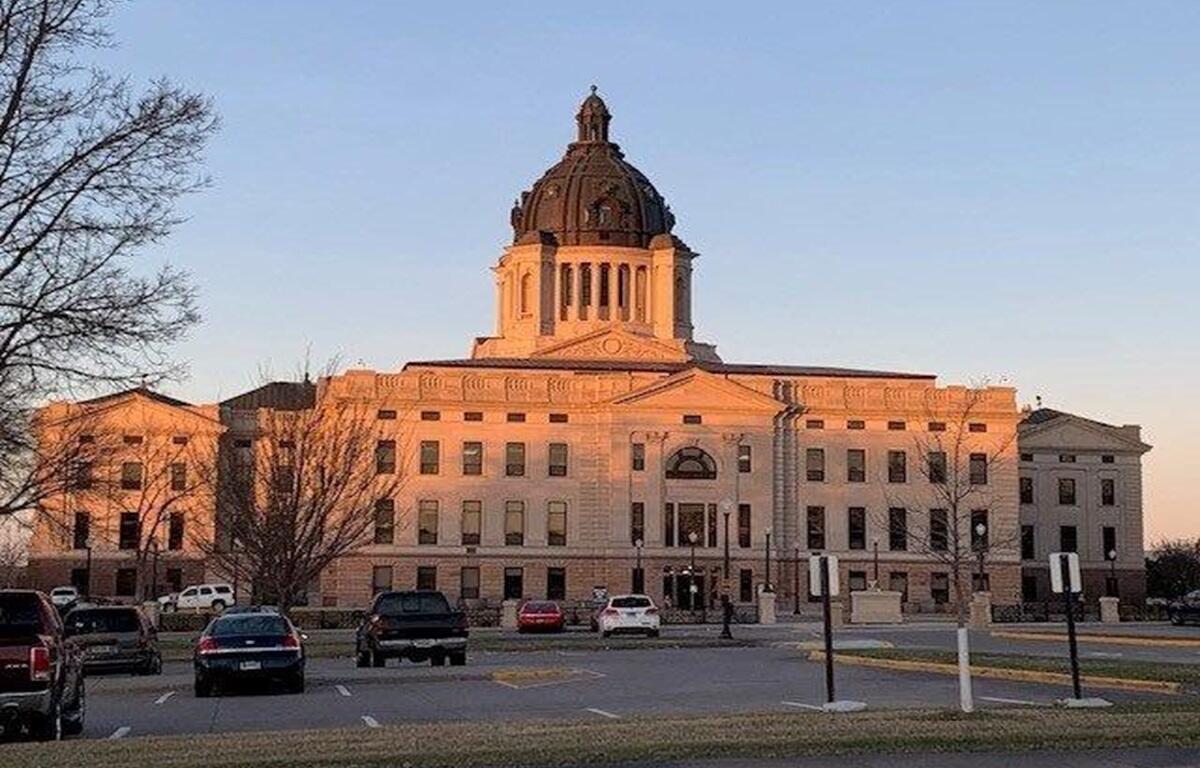PIERRE, S.D. (MITCHELL NOW) If all the parties involved in a piece of legislation go, “Meh, I can live with that,” does it make it a good compromise?
That’s the hope of SB201 in trying to find common ground among the state’s ethanol plants and Summit Carbon Solutions on one side and landowners and local government officials who oppose using eminent domain in particular and carbon sequestration pipelines in general.
The bill passed the Senate Commerce and Energy Committee passed the bill 7 to 2.
Republican House Majority Leader Casey Crabtree from Madison introduced the bill.
“It is an emotional issue for many on both sides of the debate,” Crabtree said. “Today, we get a chance to separate those emotions from facts and solving the issue. Senate Bill 201 is brought to you as a measure of compromise.”
He said he was trying to balance respect for landowners and the pipeline developers’ need for certainty.
One of the bill’s key components is that it would curtail local input into the process, particularly concerning setbacks. The Public Utilities Commission would preempt city and county governments from setting up setbacks. It would also require that the pipe be buried four feet below the ground’s surface. A fund managed by the Department of Public Safety would cover expenses incurred due to pipeline projects. A county may impose a pipeline surcharge of up to $1 per foot of linear carbon dioxide pipeline installed.
Opponents hammered the bill for what they say is a repudiation of local governments’ interest in doing what’s best for their citizens.
Even some of the bill’s supporters were less than enthusiastic about it.
“I’m a reluctant proponent this morning,” Summit Carbon Solutions lobbyist Brett Koenecke (ken-icky) said. “I’m not a huge fan of this bill as amended. I was told to come up here and try to find a way forward for this project.”
Koeneke also said he disliked the “buck a foot” provisions.
But his biggest concern was dealing with local governments and how some counties managed the previous attempt to influence the siting of the pipeline.
Koenecke said it was a “Balkanized system of pipeline regulation.”
“There’s no pathway forward for this project that involves discretion at the county level,” Koenecke said.
County officials at the hearing took offense to that statement.
Brown County Commissioner Drew Dennert from Columbia said counties like his needed to be involved to ensure landowners could develop their properties.
“Our ordinance and our setbacks make sense for our community, and they must be honored,” Dennert testified.
Koeneke had also testified that the federal government preempted the state government concerning pipeline safety. Hand County Commissioner Jim Eschenbaum from Miller disagreed. He said that at a recent “cracker barrel,” a fellow legislator said SB201 was needed to “keep the federal government from coming in and telling us what to do.”
“I don’t think so,” Eschenbaum said. “Tell the federal government to go pound sand. We’re South Dakotans, we’ll take care of things in South Dakota, and we will maintain our local control. We don’t need Senate Bill 201.”
Supporting the bill besides Koenecke were lobbyists for the South Dakota Ethanol Producers Association, GEVO, Inc., a company developing aviation fuels from corn, the South Dakota Corn Growers, Dakota Ethanol, the South Dakota Soybean Association, the South Dakota Ag Alliance, the South Dakota Chamber of Commerce and Industry, the Greater Sioux Falls Chamber of Commerce, Glacial Lakes Energy, and a farmer from Minnehaha County.
Groups and individuals opposing the measure included a Mitchell farmer and rancher, the two aforementioned county commissioners, the South Dakota Stock Growers Association, a Dayton Township official from Lincoln County, a farmer from Spink County, a farmer and rancher from Leola, Dakota Rural Action, South Dakota Farmers Union, the South Dakota Sierra Club, and Republican Rep. Kevin Jensen from Canton.
In rebuttal, Crabtree said the bill did not address eminent domain and added to landowners’ rights and protections in these situations.
“SB201 clarifies state law for those setting in place excessive setbacks in an effort to kill this project, or the next project, or the project after that,” Crabtree concluded. “And diminish South Dakota’s ag economy.”
Many of the bills introduced in the House addressing the carbon pipeline projects have gone down to defeat in the House Commerce and Energy Committee.
SB201 now goes to the Senate floor for debate.
(SDBA)


